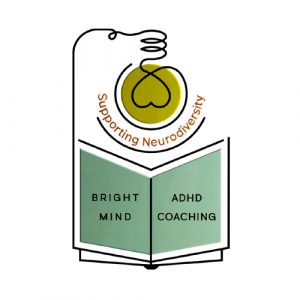
It seems like everyone is talking about ADHD these days; almost like a silent pandemic blowing up all around us. The question is why and when did all this start? Many people say it was unheard of when growing up and was labelled as being simply ‘naughty’, ‘troubled’ or ‘challenging’. There are many different reasons why people feel like they have inattentiveness or issues with focus these days. Our lifestyle today, is extremely different to what it used to be like. There are far fewer creative activities that people are engaged with such as art, sewing, knitting, carpentry, blacksmithing and the rest. Our social networks are much more different and above all, the increase use of electricity and lighting approximately 100 years ago, has had a big impact on our overall brain and neural connections, including creativity, use of memory, and cognitive function. Along with all of this are changes to our diets which are quite different from the traditional foods we were once raised on. Then there is the social and environmental climate of not being able to switch off, not just from the phone and all the different social media channels, but also from the the vast array of watchable mediums, ranging from 5 second video clips to traditional 90 minute movies to hours and weeks invested into binge worthy sequals and series. Everybody, including the young and the old are simply not giving their minds a break from all the different stimulus, which is having a detrimental impact on concentration, focus and energy used by the brain. The neural connections are weakening and we are effectively zapping the brain through our excessive use of technology and constant multi-tasking.
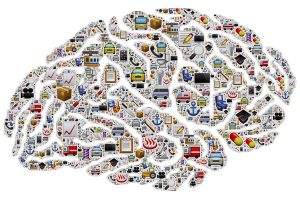
In 1798, Sir Alexander Crichton, a Scottish physician, called it “the disease of attention” and around that time, physician and philosopher John Locke referenced students who could not “keep their mind from straying.” In the 1800s, medical textbooks mentioned children who had ADHD symptoms and the condition was labeled at the time as “mental instability,” “nervous child,” and in 1902, British pediatrician Sir George Frederic Still studied a group of children and called his observation an “abnormal defect of moral control”. About 20 years later, the effects of benzedrine, the first amphetamine, were studied for the first time and children diagnosed with hyperactivity were beginning to be prescribed the medication. “simple hyperexcitability,” and much more. The 1980s saw a demystification of the condition, when it was named ADD, then ADHD.
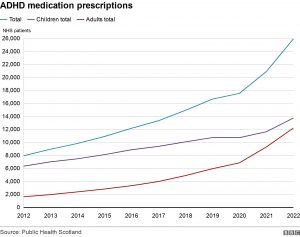
ADHD, or Attention Deficit Hyperactivity Disorder, is a neurodevelopmental condition that affects a person’s ability to focus, control impulses, and regulate their activity levels. It is characterised by symptoms such as inattention, hyperactivity, and impulsivity, which can affect daily functioning and behaviour.
A late diagnosis of ADHD can have significant impacts on a person’s life, as many of the challenges associated with the condition may have been misunderstood or misinterpreted for years. Individuals with ADHD often struggle with academic, social, and emotional difficulties, often leading to frustration, low self-esteem, or feelings of inadequacy
Academic Struggles: Many individuals with undiagnosed ADHD may experience ongoing difficulty with concentration, organisation, and time management. This can result in poor academic performance, despite intelligence or effort. These struggles may go unnoticed or be attributed to laziness or lack of motivation, potentially causing feelings of shame or failure.
Emotional and Mental Health Issues: A late diagnosis may result in emotional distress, anxiety, depression, or frustration. People might feel as though they have been misunderstood or that something is “wrong” with them. Over time, this can lead to chronic stress and an increased risk of mental health challenges
Relationships: Difficulties with impulsivity, inattention, or emotional regulation can strain personal relationships. Individuals may feel misunderstood by family, friends, or partners, which can lead to social isolation or conflict.
Workplace Issues: As adults, individuals with undiagnosed ADHD may struggle with maintaining focus, meeting deadlines, or staying organised in their professional lives. This can lead to job dissatisfaction, underachievement, and even job loss, as their struggles may be mistaken for incompetence rather than the effects of ADHD.
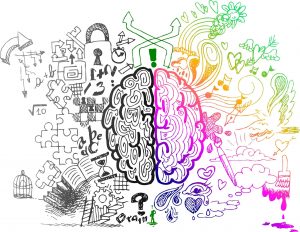
Three primary symptoms of ADHD
Inattention: This involves difficulty sustaining focus, being easily distracted, and having trouble organising tasks or following through with them. People with ADHD may struggle to remember instructions, forget appointments, or misplace things frequently.
Hyperactivity: This symptom is characterised by excessive movement or restlessness. Individuals may find it hard to sit still, fidgeting or tapping their hands or feet. They might talk excessively or have difficulty staying seated in situations where it is expected, such as in meetings or classrooms
Impulsivity: Impulsive behaviours involve acting without thinking about the consequences. This can include making snap decisions, interrupting others during conversations, or struggling to wait one’s turn. Impulsivity can also manifest in risk-taking behaviours.
As the brain is a complex muscle and everybody’s brain is wired differently These symptoms can vary in intensity from person to person and may present present differently in children and adults.
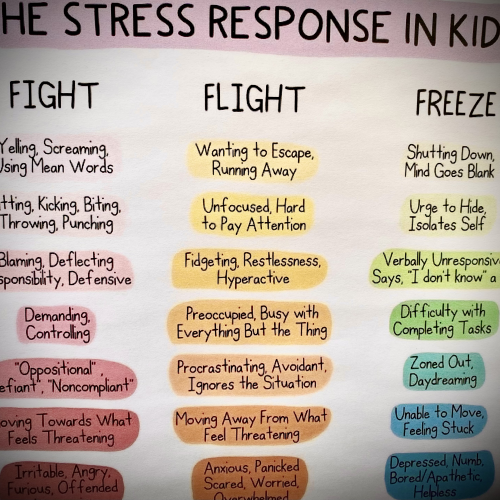
Impact on different stages of life
Early Years to Adolescence
In children, ADHD is most commonly identified due to symptoms like hyperactivity, impulsivity, and inattention. These symptoms can significantly affect academic performance, social interactions, and family dynamics.
Academic challenges: Children may struggle to sit still in class, complete assignments on time, or follow instructions. Their impulsivity may lead to difficulty in staying focused during lessons, and they may get easily distracted by external stimuli.
Behavioural issues: Children with ADHD may have difficulty with self-regulation, leading to problems with disruptive behaviour, such as interrupting conversations or acting without thinking, which can cause tension at home and in school.
Social difficulties: Children with ADHD often struggle with forming friendships due to difficulties in listening, taking turns, or understanding social cues. This can lead to feelings of isolation or low self-esteem.
Adolescence (Teen Years)
As children with ADHD grow into teenagers, the challenges evolve, often becoming more complex:
Academic struggles: While some teenagers with ADHD may learn strategies to cope with their symptoms, others may continue to struggle, especially with tasks requiring organisation, long-term planning, and sustained focus. Grades may be inconsistent, and they might miss deadlines due to poor time management.
Risk-taking behaviour: Teenagers with ADHD are more likely to engage in impulsive or risky behaviours.
Social relationships: The impulsivity and emotional regulation challenges associated with ADHD can strain friendships and romantic relationships. Teens may also experience increased frustration or conflict with authority figures, such as teachers or parents.
Co-occurring conditions: Anxiety, depression, and other mental health conditions are more common among adolescents with ADHD, often exacerbated by academic pressures or social difficulties.
Adulthood (Early Adulthood to Middle Age)
In adulthood, ADHD may continue to affect individuals, though some people may develop coping strategies to manage symptoms. However, challenges remain:
Work performance: Adults with ADHD may struggle in the workplace due to issues with organisation, time management, and maintaining focus. They might find it difficult to complete long-term projects or follow through on tasks without regular reminders. Procrastination can be a significant issue.
Relationships: ADHD can affect relationships with partners, family members, and colleagues. Impulsivity, forgetfulness, and emotional regulation issues can cause misunderstandings and frustration.
Financial difficulties: Adults with ADHD may have difficulty managing finances, as they might forget bills, make impulsive purchases, or struggle with organisation.
Mental health issues: Many adults with ADHD also experience mental health challenges, such as anxiety, depression, or low self-esteem, due to the ongoing difficulties they face in daily life.
Later Adulthood (Older Age)
Though ADHD is often diagnosed in childhood, some individuals may not realise they have it until later in life. In older adults, the symptoms might become less pronounced or more manageable, but challenges can still exist:
Cognitive decline: Older adults with ADHD may experience difficulties with memory, focus, and attention. These symptoms may overlap with age-related cognitive decline, making it harder to distinguish between ADHD and age-related changes.
Health and lifestyle: Difficulty with organisation and planning can affect an older adult’s ability to manage health routines, attend medical appointments, or maintain a healthy lifestyle.
Retirement and social isolation: Retirement can bring new challenges, especially if an individual has relied on structure and external deadlines for organisation. Some older adults may experience feelings of loss of purpose, which can be amplified by the symptoms of ADHD.
Emotional Dysregulation
Emotional regulation can be a significant challenge for individuals with ADHD. People with this condition often experience intense emotions and have difficulty managing them, which can affect their relationships, work, and overall quality of life. This difficulty in emotional regulation is not necessarily about a lack of empathy or awareness but stems from the neurological and cognitive aspects of ADHD that affect impulse control and self-regulation.
1. Intense Emotional Responses
Individuals with ADHD often experience emotions more intensely than others. They may have strong reactions to events that others would not perceive as significant. For example, a minor critique at work might lead to disproportionate feelings of frustration or sadness. These intense emotions can sometimes feel overwhelming and hard to control, leading to outbursts, irritability, or anxiety.
2. Difficulty Controlling Impulses
One of the core features of ADHD is impulsivity. This can extend beyond actions and into emotions. Individuals may act on their feelings without pausing to reflect or consider the consequences. For example, someone might lash out in anger before realising that their reaction is excessive, or they may express their emotions in ways that seem inappropriate for the situation.
3. Emotional Sensitivity
People with ADHD are often more sensitive to criticism or perceived rejection, which can make emotional regulation even harder. This heightened sensitivity can lead to feeling easily hurt, misunderstood, or criticised, which may escalate emotional reactions.